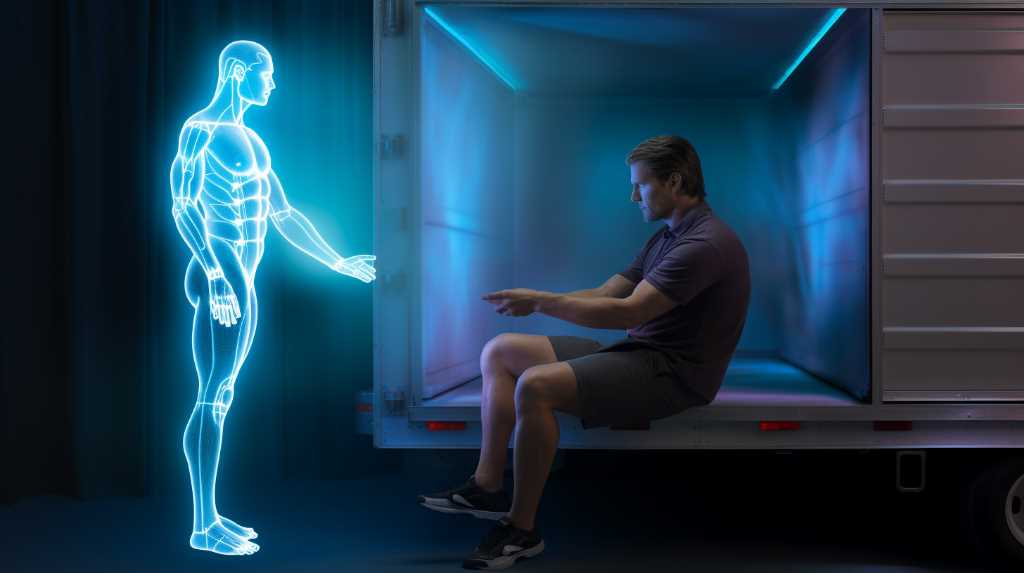
If you’re feeling hip pain after being in a truck accident, it might mean you have a serious injury. It’s very important to see a doctor right away to figure out exactly what’s wrong and how to treat it.
A full medical check-up can show how bad your hip injury is, whether it’s just muscle damage or something more, like a broken bone or a hip that’s moved out of place. Make sure to keep a detailed record of your injuries. This is important if you need to deal with insurance or if you have to go to court.
Following your doctor’s treatment plan and maybe getting some physical therapy can really help you get better. Also, talking to a lawyer who knows about these kinds of cases can help make sure you get the money you deserve for your injuries and any other problems caused by the accident.
Seek Immediate Medical Attention
If your hip hurts after being in a truck crash, go to a doctor right away to check for injuries and start the right treatment.
A hard hit to the hip during a car crash can cause different types of bone and muscle damage, from bruises to serious breaks. It’s important to get checked out quickly, which will probably include getting X-rays or a CT scan to find out exactly what’s wrong.
Getting help early is key to avoid long-lasting health problems. Usually, bone doctors, or orthopedic surgeons, handle your care. They might suggest various treatments, like pain medicine and physical therapy, or even surgery if the injury is bad.
Following the doctor’s advice based on proven methods helps you heal properly and lowers the chance of future issues like arthritis from the injury.
Document Your Injuries
After ensuring immediate medical attention for hip pain resulting from a truck accident, it is crucial to meticulously document all injuries sustained, as this information may be pivotal for insurance claims and potential legal action.
Comprehensive injury documentation should include an initial assessment by a healthcare professional, detailing the extent of the trauma, such as fractures, dislocations, contusions, or soft tissue damage. Radiographic evidence, including X-rays, CT scans, and MRI results, should be secured to substantiate the diagnosis.
Furthermore, maintaining a log of symptoms over time can demonstrate the progression or resolution of the injury. This clinical record, supported by visual documentation through photographs of the injury and the accident scene, will serve as an evidentiary foundation for any subsequent medical evaluations or forensic examinations.
Follow a Treatment Plan
A victim’s adherence to a prescribed treatment plan is a critical step in the recovery from hip injuries sustained in a truck accident. Post-traumatic rehabilitation protocols typically include pharmacotherapy for pain management, physical therapy to restore mobility, and possibly surgical interventions for severe musculoskeletal damage.
Rehabilitation exercises are often tailored to enhance joint function and muscular strength, reducing the risk of long-term disability. Compliance with follow-up appointments allows for ongoing assessment and adjustment of the treatment regimen, ensuring optimal healing trajectories.
It is imperative for patients to engage with each therapeutic modality as nonadherence can lead to suboptimal outcomes, including chronic pain or arthritic developments. Moreover, diligent participation in prescribed activities and avoidance of contraindicated actions are paramount for a successful recuperation.
Consider Physical Therapy
After a truck accident, it’s really important to start physical therapy to help with hip pain and to get back to how you were before the accident. When you see a physical therapist, they’ll check out your hip to see how bad the injury is and make a special plan just for you to get better.
This plan might include different ways to manage pain, hands-on therapy, exercises, and walking practice to help you move better, get stronger, and last longer when doing things. They might also use things like ultrasound or a little bit of electric stimulation to help your tissues heal faster and to make the pain less.
It’s super important to stick with your physical therapy plan because it really helps you heal better and is often a key part of getting better after an injury like this.
Explore Legal Options
If you’re dealing with hip pain after a truck crash, it’s crucial to talk to a lawyer to look into your options for getting paid for your injuries. A good lawyer will examine the crash details to pinpoint any rules the truck might have broken and figure out if the truck driver wasn’t careful enough. You need someone who really understands the tricky parts of personal injury and trucking laws.
Having a lawyer helps you sort through who is to blame, how the crash caused your injuries, and the extent of the harm done. They will make sure to record all the medical findings and how your injury affects your life, which is very important when you’re trying to show why you deserve money for your troubles. Moreover, a lawyer is skilled at talking to insurance companies to make sure you get fair payment for your medical bills, therapy, lost pay, and the pain you’ve been through.
Conclusion
If you’re dealing with hip pain after being in a truck accident, it’s really important to see a doctor right away. This will help you understand how bad your injury is.
Following the doctor’s orders, including doing physical therapy, will help you heal better.
It’s also a good idea to talk to a lawyer if you think you should be paid for your injury. Taking care of your hip pain the right way means looking at both the medical side and the legal side of things.
This way, you get the full support you need to get better.